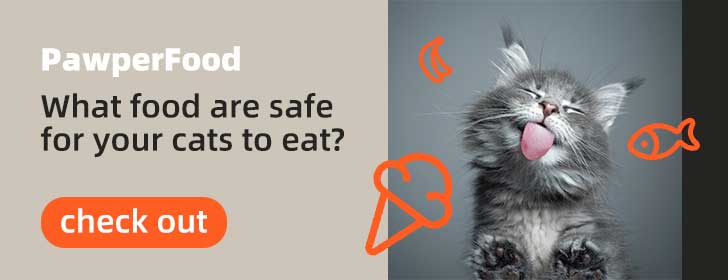Parsley is a herb that is often used as a garnish or a flavoring agent in human food. It has some health benefits, such as antioxidants, vitamins, and minerals.
As a cat parent, I’ve always been cautious about what human foods are safe to feed my cat. So I know what to do when my cat is rummaging on my table or sniffing around my herb garden, particularly the parsley plants.
Can cats eat parsley? Let’s find out.
Is Parsley Safe for Cats?
According to veterinarians and the ASPCA, parsley is not toxic to cats.
However, that doesn’t mean it’s entirely safe or beneficial for them to eat.
Cats are obligate carnivores, meaning their bodies are designed to derive nutrients from meat and not to properly digest plant materials, including herbs like parsley.
While a small amount of parsley likely won’t hurt your cat, it’s not something they need in their diet.
Moreover, certain forms of parsley, like ‘Spring Parsley,’ can be toxic to cats.
So, while your cat might be interested in the plant due to its interesting smell and texture, keeping the parsley garnish on your plate and not in your cat’s bowl is probably best.
Risk of Feeding Your Cat Parsley
Feeding your cat parsley can pose several risks.
For one, as I mentioned earlier, cats are not designed to digest plant material efficiently.
This can lead to gastrointestinal upset, including vomiting or diarrhea.
Secondly, while parsley itself is not toxic to cats, certain types of parsley, like ‘Spring Parsley,’ are poisonous and can cause serious health issues.
Moreover, parsley essential oil is high in compounds that can be toxic to cats and should be avoided.
Can I Feed My Cat Parsley?
While it’s not toxic, it’s generally best not to feed your cat parsley.
There are far better ways to provide your cat with any essential nutrients, mainly through a balanced, meat-based diet.
If your cat seems unusually interested in parsley or other herbs, it’s worth discussing this with your vet to ensure their diet fulfills all their nutritional needs.
Benefits of Parsley to Cats
For humans, parsley is known for its nutritional benefits, including being rich in vitamins A, C, and K, and minerals like iron and potassium.
However, these nutritional benefits don’t necessarily translate to benefits for our feline friends.
Cats require a different nutritional profile, primarily sourced from meat.
While parsley might add a nice flavor to our meals, it doesn’t benefit cats significantly.
Is There Some Safe Alternatives?
If your cat enjoys nibbling on plants, cat grass (wheatgrass) is a safer alternative.
Many pet stores sell cat grass kits that you can easily grow at home.
Cat grass can provide a safe outlet for your cat’s urge to chew on greens.
Another safe alternative is catnip, which most cats love.
However, it’s important to remember that while these are safe options, they should be offered in moderation and are not a necessary part of a cat’s diet.
What Herbs Can Cat Eat?
While many herbs, like parsley, are not toxic to cats, it’s generally best to avoid feeding them to your cat.
Their bodies simply aren’t designed to process plant material efficiently.
However, if you want to add variety to your cat’s diet or if your cat enjoys nibbling on plants, some cat-safe herbs include thyme, sage, and valerian.
Remember, just because something is safe doesn’t mean it’s beneficial or necessary for your cat’s diet.
Always consult with your vet before introducing new foods into your cat’s diet.
Final Thoughts
In conclusion, while a nibble of parsley likely won’t harm your cat, it’s best to avoid feeding them herbs and stick to a balanced, meat-based diet.
Consider safer alternatives like cat grass or catnip if you have a curious nibbler.
When in doubt, your vet is always the best source of advice on what’s safe for your cat to eat.








